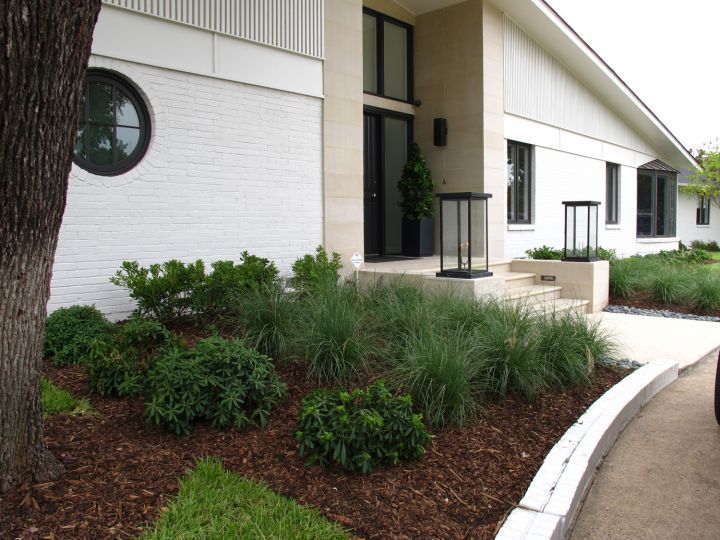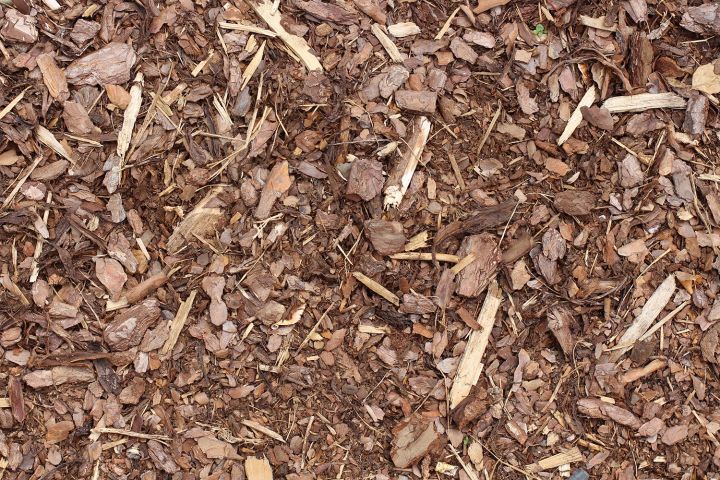The Many Benefits of Mulch
December 3, 2019 | By webadmin
There’s no doubt that mulch offers big benefits to the look and health of your landscape. A fresh top-dressing of mulch gives your landscape a fresh finished look. Even if you don’t feel like pulling weeds or doing any other yard work this time of year, adding mulch makes everything look better. But beyond good looks, what else can mulch do for you and your landscape plants?

Mulch Benefits
Water: One of the most important benefits of mulch is that it helps to retain soil moisture. In our climate, water is precious (especially hot summer months) and uncovered soil loses water quickly to evaporation. Mulch slows evaporation, meaning less watering, less plant stress, and a lower water bill.
Soil Quality: Over time as mulch breaks down, it adds organic matter and valuable nutrients back into the soil. Seasonal mulching is an easy way to build soil fertility in our depleted and nutrient starved soils. In addition, mulch protects soil from wind and water erosion.
Protection: Mulch also helps to protect plants from large temperature swings by acting as a natural insulator. Roots will stay warmer in the winter and cooler in the summer – which helps to mitigate the negative effects of early or late cold snaps or intense heat waves.
Weed Control: One benefit of mulch that is almost priceless is that it acts as a natural weed inhibitor. A 2” layer of mulch on bare soil will inhibit the germination of weed seeds and block light from getting to the weeds that have already sprouted.
Pathways: Many types of mulches are suitable for creating natural pathways through your landscape. Pine straw and pecan shell mulches are often used for pathways.
Types of Mulch
There are many types of mulch to choose from, but not all of them are the right choice. If you’re looking to regularly add organic matter to the soil, then choose organic mulch such as shredded hardwood, shredded cedar, softwood, pecan shells, or even pine needles. Organic mulches come in different colors and textures to fit your landscape style.

Mulch Tip: Never pile mulch against the base of your trees or shrubs. Mulch that is too thick, or piled against the crown or trunk can cause damage and decay.
Refresh your organic mulch in both spring and fall for best results. To keep your landscape looking its absolute best, you can top-dress with a light layer of mulch anytime for a fresh look.
Did you know? You can use your shredded fallen leaves as a natural mulch that breaks down to add organic content to your soil. Whole leaves can also be used around plants as winter insulation.
If you are looking to deflect water away from the crowns of more water sensitive plants or drought-tolerant natives, you can sometimes go with a hardscape mulch, such as expanded shale, river rock, or other type of gravel. While hardscape mulches won’t improve your soil quality, they may be more suitable for certain types of plants or slopes where organic mulch won't stay put.
There’s a mulch for every type of landscape. Give us a call if your landscape is ready for a seasonal refresh.
